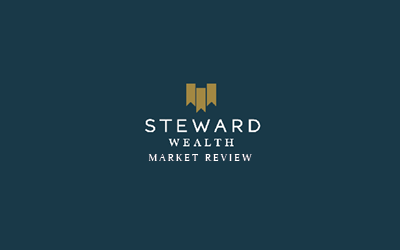Monthly roundup
September was all about currencies. Despite trying to continue its delicate balancing act of working out the least disruptive way of removing the punch bowl, the Fed set off alarm bells when they increased their forecast for where cash rates will be at the end of 2015 to 1.375%, which is almost twice what the market had factored in. While that’s still not a big number, it’s coming off the current 0.25% and it leaves the US as about the only place where rates are going up. On a trade-weighted basis, the US$ has now enjoyed its longest rally since 1967.
A$/US$
Source: IRESS
In stark contrast to the US, the European Central Bank had to raid its bag of tricks again after banks showed little interest in taking the (almost) free money on offer: out of a total of €400bn available last week less than €83bn was taken up by banks. People and companies simply don’t want to lend, or those that do are not the ultra-low risk borrowers the gun-shy European banks are looking for (see the chart below). So Draghi surprised markets by cutting the policy rates for the second time in as many months and outlining a plan that will see the ECB’s balance sheet expand by roughly €1tn. When even Germany’s economy is shrinking it shows just how tough things are in Euroland and not surprisingly the € has been smacked – again, exactly what they wanted.
Bank corporate lending
Source: ECB, FDIC, Deutsche Bank Research
The UK, which had been odds on favorite to be the first to raise rates, is holding off because of concern over their Euro cousins. Aside from breathing a huge sigh of relief that Scotland voted not to break up, it’s becoming a battle to resist the rising economic tide, with the number of unemployed experiencing the biggest decline in 26 years. Perhaps an interesting insight as to why the UK isn’t taking off: household wages, excluding bonuses, is the lowest on record. Under this government wages after inflation have already fallen by more than £1,600 a year since 2010 and by next year working people will have seen the biggest fall in wages of any parliament since 1874.
There was hope that China would announce its own economic stimulation package after industrial output dropped to a six year low but the finance minister hosed that down. It’s not that long ago that the government ‘solemnly promised’ there will be no hard landing but they seem happy to let the steam come out of the banking and property sectors. The highlight for China’s month was the float of Alibaba, which jumped 38% on its first day.
Australian housing
“We perhaps have been a little bit over keen on investment property as our retirement plan” – Glenn Stevens, Governor of the Reserve Bank of Australia, 3 September 2014
It’s not entirely unusual for the Reserve Bank to comment on the Australian housing market, in fact there have been at least six in the last ten months. But the nature of the comments has recently become increasingly concerned that property investors are becoming ‘over exuberant’, especially in Sydney.
Australian house prices*
* Excludes apartments
Source: RBA, RP Data-Rismark
Property lending data that came out this month showed investors accounted for almost half of all housing lending and first home buyers are at all-time lows of around 13%.
Housing loan approvals
Source: ABS; RBA
The big worry is that a massive 64% of investment loans are interest only. That might be alright while rates are very low, but when they eventually rise, those investors will need rental yields to help pay their debt. However, RP Data shows gross rents in Sydney are currently 3.6% p.a. and 3.2% in Melbourne. That’s gross rents, so after finance, management and maintenance costs the real yield is negative, which is arguably a reflection of the number of investors who have purchased purely for capital gain!
Much of this can be attributed to the 50 year low interest rates Australia is experiencing. But the RBA doesn’t want to raise rates to control the housing market for fear of a rising A$ and slowing the rest of the economy. Not surprisingly then, the RBA has opted for jawboning and sabre rattling, talking about introducing restrictions on bank lending for housing.










